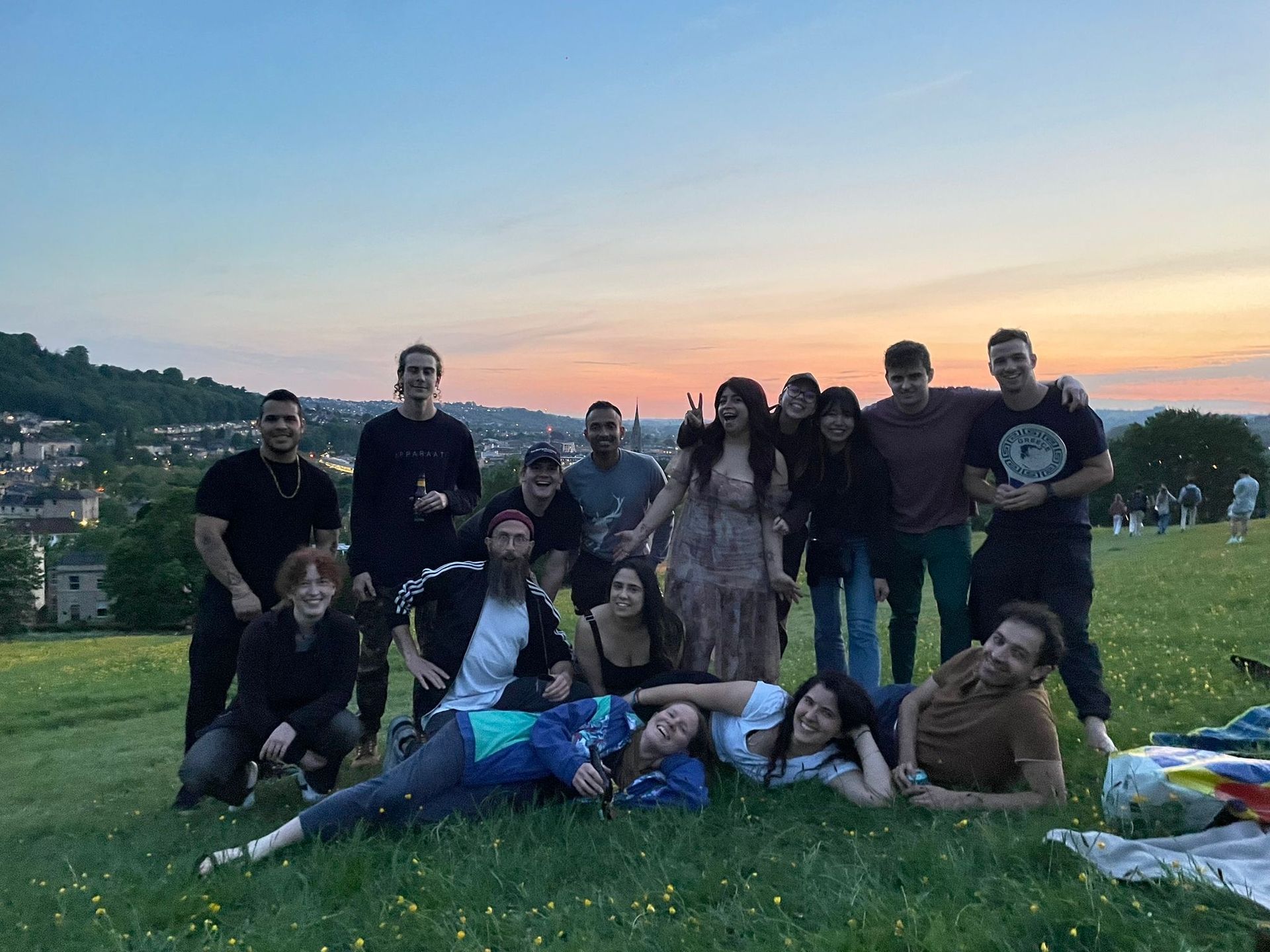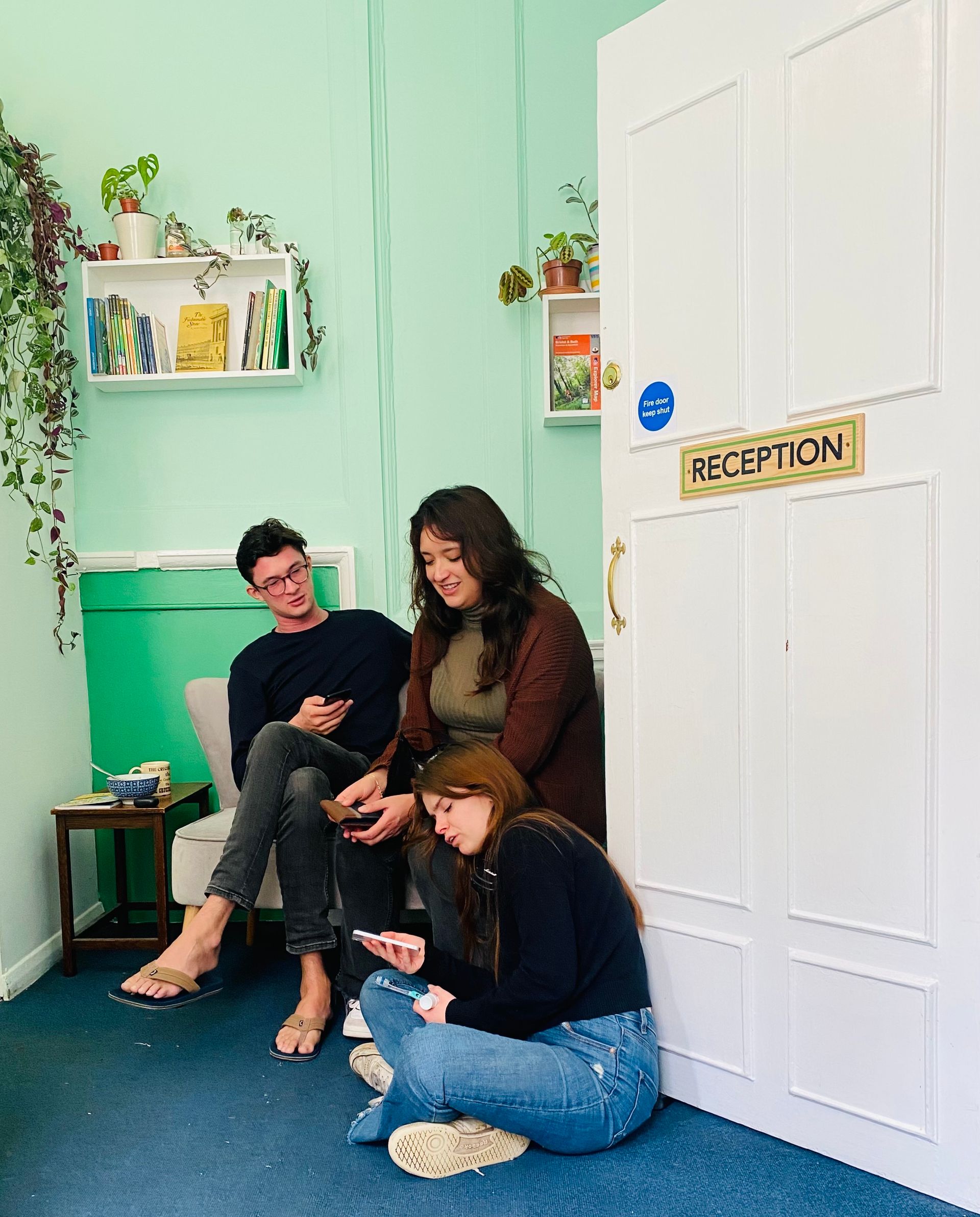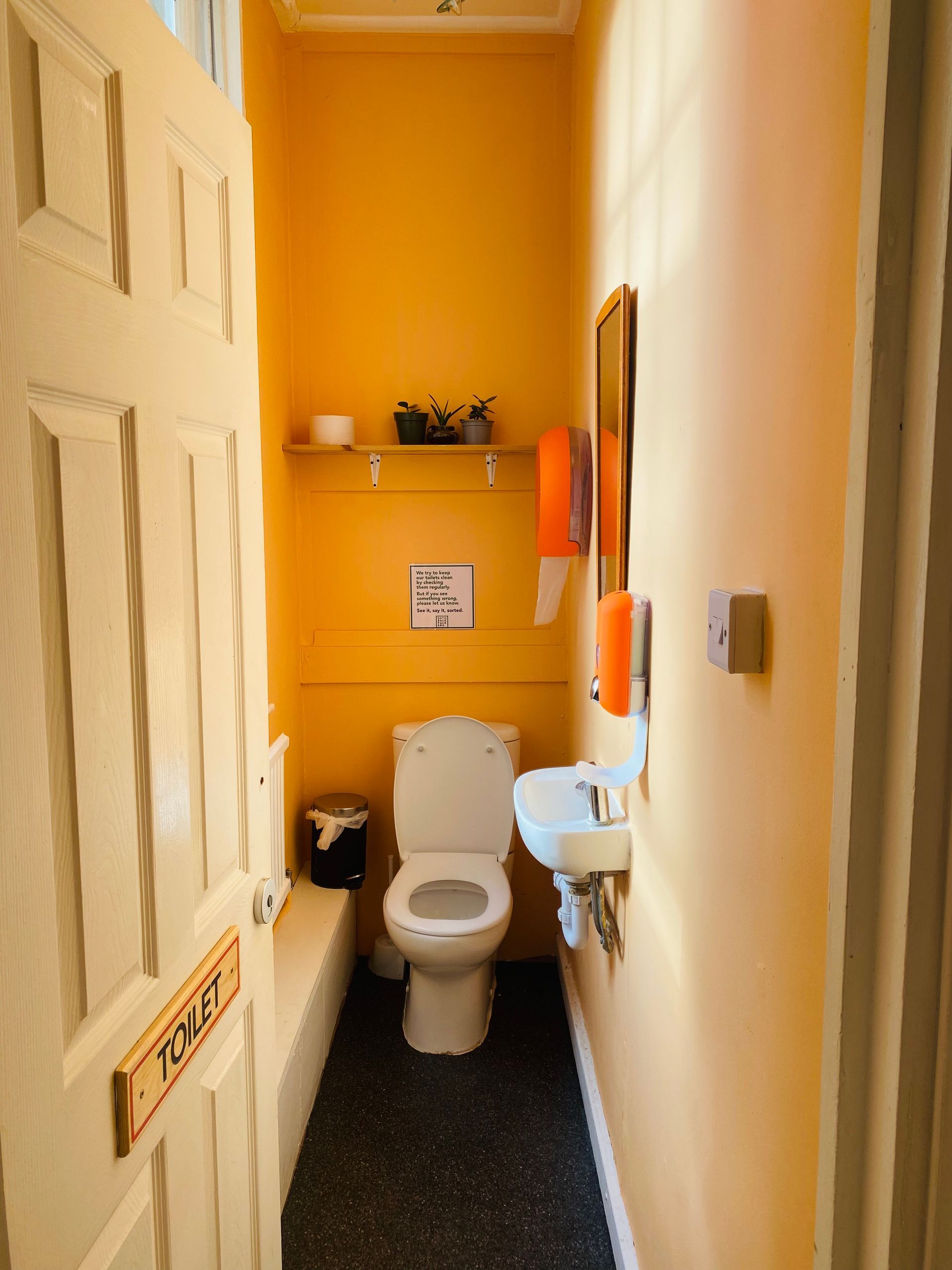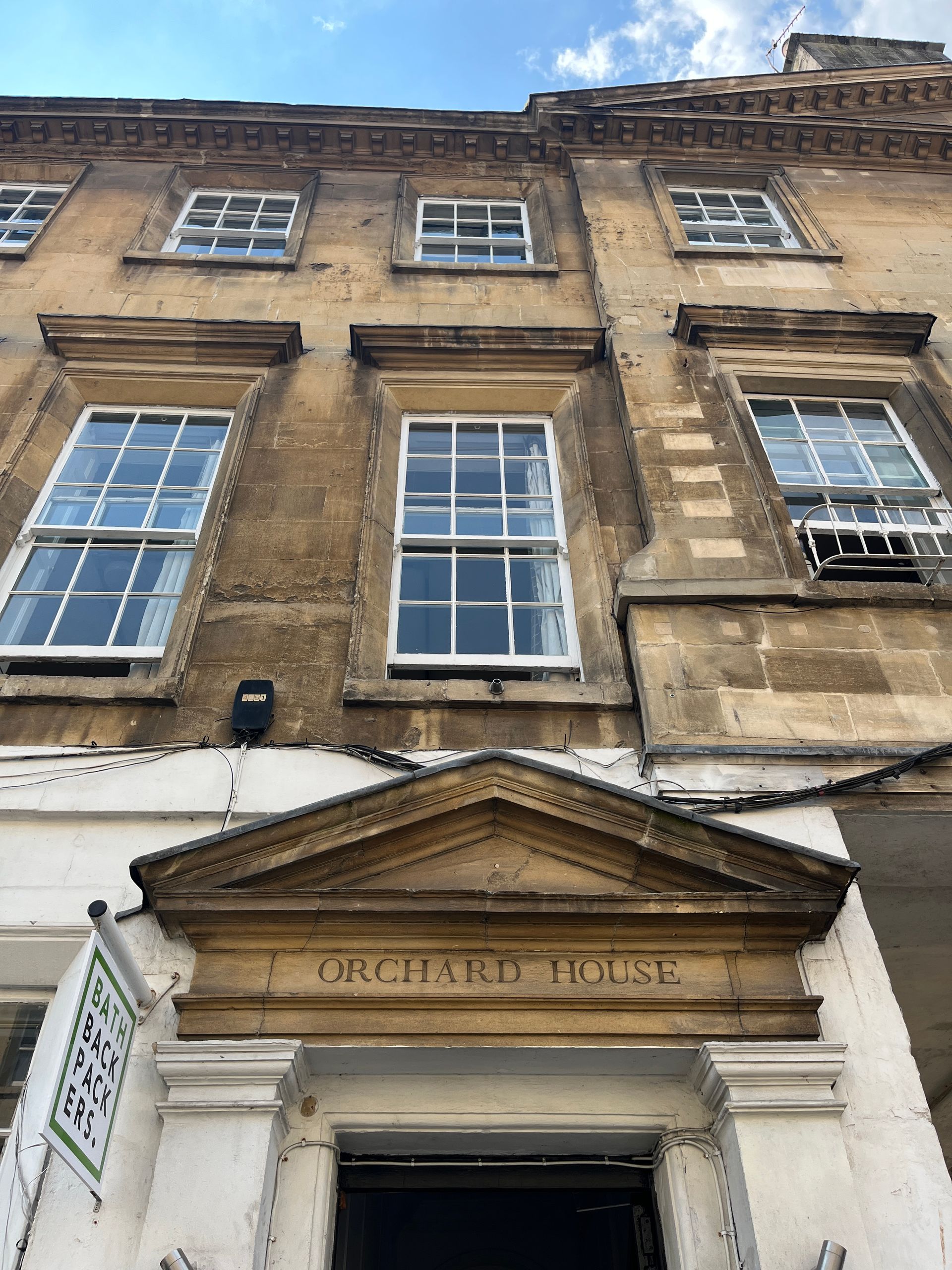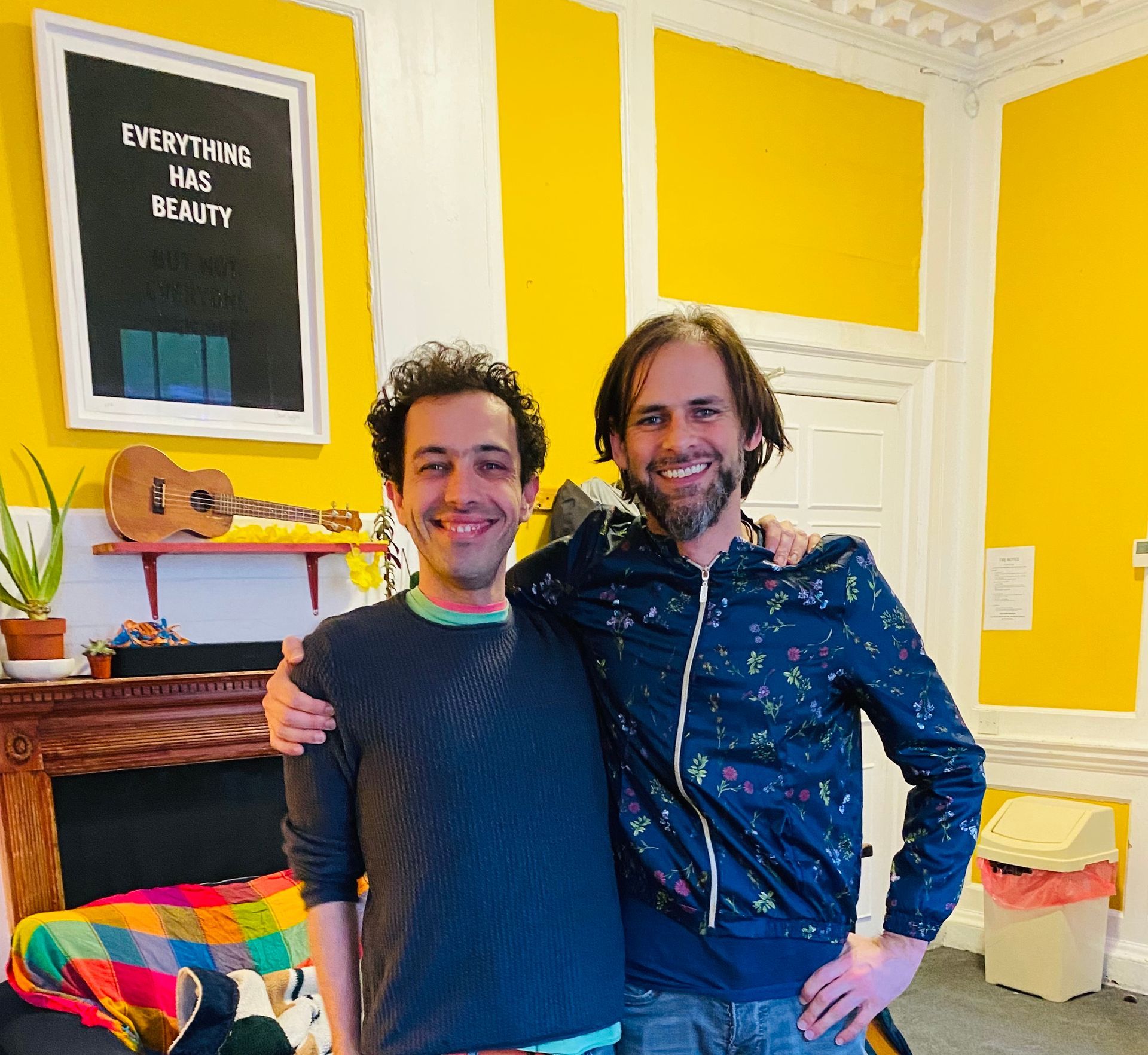A Hundred Plants
Manu, Maggie and Aymeric are spring cleaning - sorting out the last cupboards and cubby holes that are not yet fully-organised spaces. One goal is putting all gardening equipment in the same place - free Olio plant pots picked up from Twerton, found bamboo canes, and soil rescued from Abbey Hotel's end-of-summer dismantling of their outdoor planters. Once we have a gardening store, it'll be easier for me and Leia to repot plants that have outgrown their vessels, and in turn transfer into small pots the little sprouts that have sprung roots in jam jars. We have grand future plans - cuttings, herb planters, hooks to hang baskets from ceilings - but first we need to organise our equipment.
Our brave shoots of tradescantia zebrina have waited patiently over winter, after I found them blowing around in the street having been yanked from city floral displays by heavy winds or drunk students. Winter is always tough for plants and this year it's been a real struggle for ours. While we closed for building work in January, the lucky ones merely had to cope with daily coatings of brick dust, while those less fortunate found themselves teetering precariously on naked metal bed frames in a lightless Solsbury dorm, in a futile quest for pale, cold light from windows blocked by stacks of kitchen equipment. One little succulent died, likely already weakened by my overwatering.
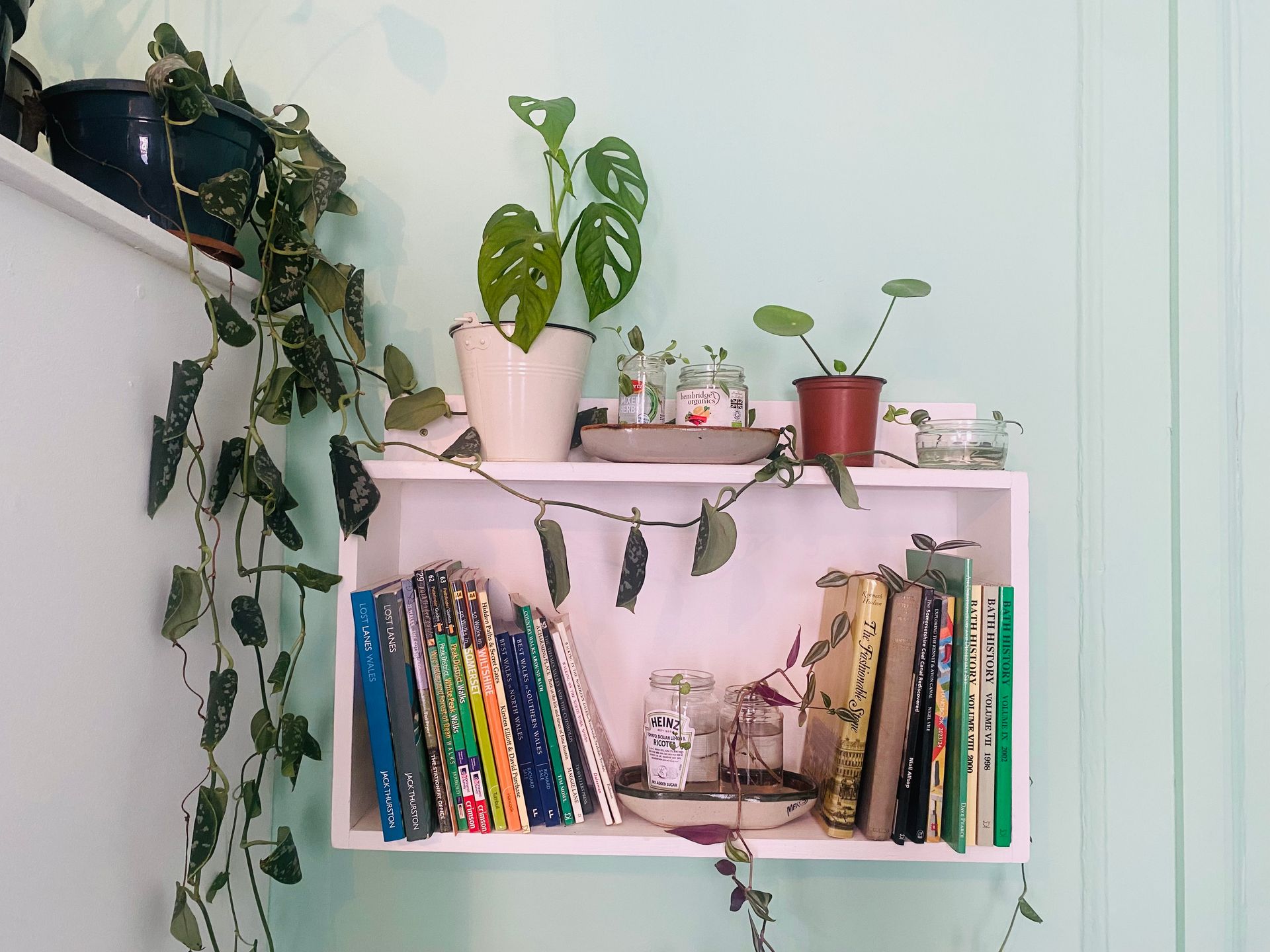
I've always considered myself not to be green fingered, lacking the gardening enthusiasm exhibited by most of my family. But rooting myself in one place for the first time in decades has nurtured an enthusiasm to care for and grow indoor plants, drawing on wisdom from my father I’ve somehow retained. As I tour the building each weekend wiping leaves, moistening soil, and shifting plants around, dad's words ring in my head: it's easier to over- than to under-water; even when they look dead plants can sometimes come back to life; gardening is an experiment that won't always work.
At
Prime Backpackers, the hostel Aris managed in London, Katie would care for the plants with dedication and skill, so during her recent Bath visit I asked how to repot orchids. As we carefully filled the pots with bark from
Prior Park Garden Centre, we imagined making care instructions for all the plants in the hostel, setting out in a chart their preferences for light, humidity, and watering conditions. You could get some nice flat pebbles and write on them the name of the plant and put it inside the pot, said Katie. It'll be easy to reference with the care chart, and that way other people can take care of them too.
The following week, I visited the Somerset coast, staying at East Quay arts centre. I gathered two huge mushrooms as I walked the coast path from the ancient harbour town of Watchet to Mediaeval Dunster. Back at East Quay, I identified the mushrooms as edible, and researched Dunster, learning that it was part of an administrative unit particular to Somerset called a 'hundred'. Later, I took part in a virtual training session hosted by Julie's Bicycle where (unintentionally, yet precisely) one hundred participants discussed how to champion the environment in arts organisations. Down on the windy beach I gazed over the Severn Estuary at the industry of Port Talbot in South Wales and decided to gather one hundred pebbles, selecting them on my final day from among sea shells, smoothed chunks of brick, and dead leaves tangled in seaweed.
Last week I counted our plants, and invited guesses how many: Izzy's 87 was very close to the the actual number of 91 indoor plants, plus one thyme, the first of what we intend to be several pots of herbs on the kitchen windowsill. We bought just one of our plants from a shop, the gorgeous Botanica Studio, as a hostel treat to celebrate last year's Reception refurbishment. It's beautiful, but our satin pothos hasn't thrived during the dark English winter. Several plants were repotted by Leia when she last stayed with us - the peace lillies, the tradescantia pallida. Many were gifts - a fishbone cactus from Ana, a snake plant from Eden, and two aeoniums from Frances. Giulio's majestic terrarium has pride of place on a windowsill, while Thea's calathea luxuriates on a high shelf, a present to us that she found in Chapter 22 Roots and Records. Number 100 will be another shop purchase, this time from Urban Garden in Victoria Park, because we like their social and ecological ethos.
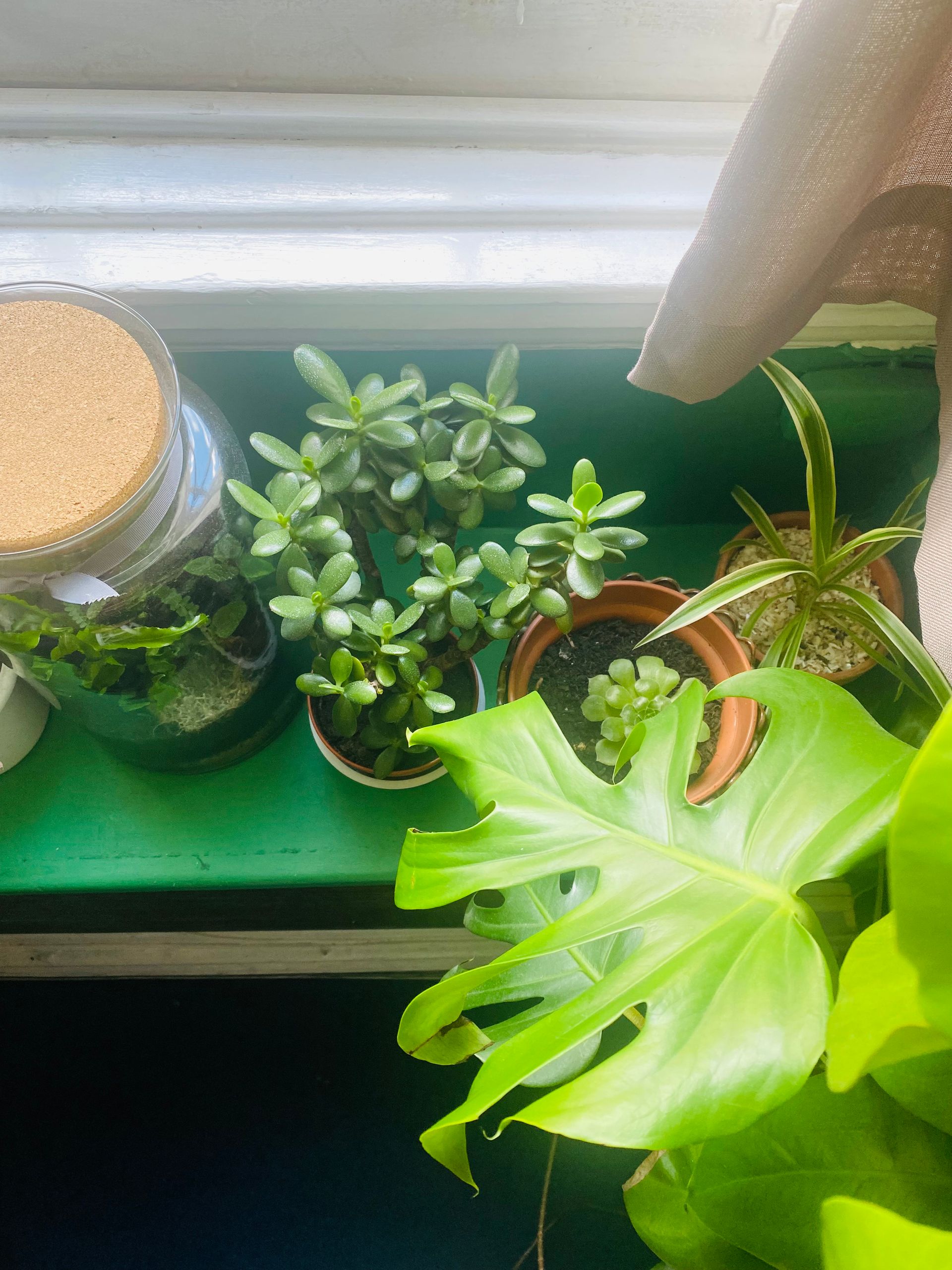
Then there's our recent gift of cousin Lucy's abundant golden pothos, formerly encircling her living room on the ladder racks - iconic 1970s furniture that once belonged to my parents, where it accommodated the 'best' crockery that we never touched in our family home, plates and bowls which are now used daily by our hostel guests. In cousin Lucy's London flat, the ladder racks were perfect for the trailing creeper, which seems just as happy in its new spot on our high kitchen shelf - or Ellie's shelf as we call it, named after the landlady of our perennial favourite indie pub The Grapes. Ellie popped round mid-renovation to check out how the kitchen refit was coming along, and suggested the shelf as a finishing touch. Other small businesses in Bath are always an inspiration - the care that local cafes Cortado and Daisy and Bean give to their plants reflects the welcome and generosity you can expect in both places, while Yak Yeti Yak next door have some wonderful mature specimens in keeping with their longevity as a Bath institution.
The two dracaena in our Common Room were the first plants we acquired, rescued in a shabby and uncared-for state from a house in Larkhall, now thriving and glossy with the little one enjoying the freedom of its own pot, quite happy alongside the guitar and blankets in their protected corner. Finding spots where plants are less likely to get knocked over is more of a challenge in a hostel than a regular home, so we make use of higher shelves in the first and second floor toilets, above the bookcase, and there’s even a hardy aloe vera on a remote windowsill as you head down to the showers. After Enrique had scrubbed the copper pipes in the men's toilets, Aris said it was time to reward the space with a plant. It seemed an ideal spot for the fern that received too much sun on the second floor, and it's now thriving, with a tendril wrapping itself lovingly around the urinal piping. Julia tried to nurture a jungle in her room, but only one sad pothos now battles on, while our own room used to be the spot to which I removed plants that were struggling, to give them extra protection and care. Recently we fitted a desk so we can do hostel administration more easily, with the improved room now filled with monstera and maranta rather than just being a botanical hospital.
Most of our plants come to us from homes around Bath. I spot them online, free or for a nominal price, then head out to Snow Hill and Foxhill, Claverton Down and Bathampton, where I meet people who are passing them on because they have a new pet that bites holes in the leaves, are raising funds for a project, or are moving to a boat with limited space. But mainly they are offered by people who love growing and so end up with an over-abundant collection. We recently walked over to Bathwick to pick up four plants including the huge new monstera now dominating reception. We took turns lugging it back, stopping at every bench on Great Pulteney Street to swap and stretch, exhausted by the time we reached the hostel, but thrilled with our giant new companion.
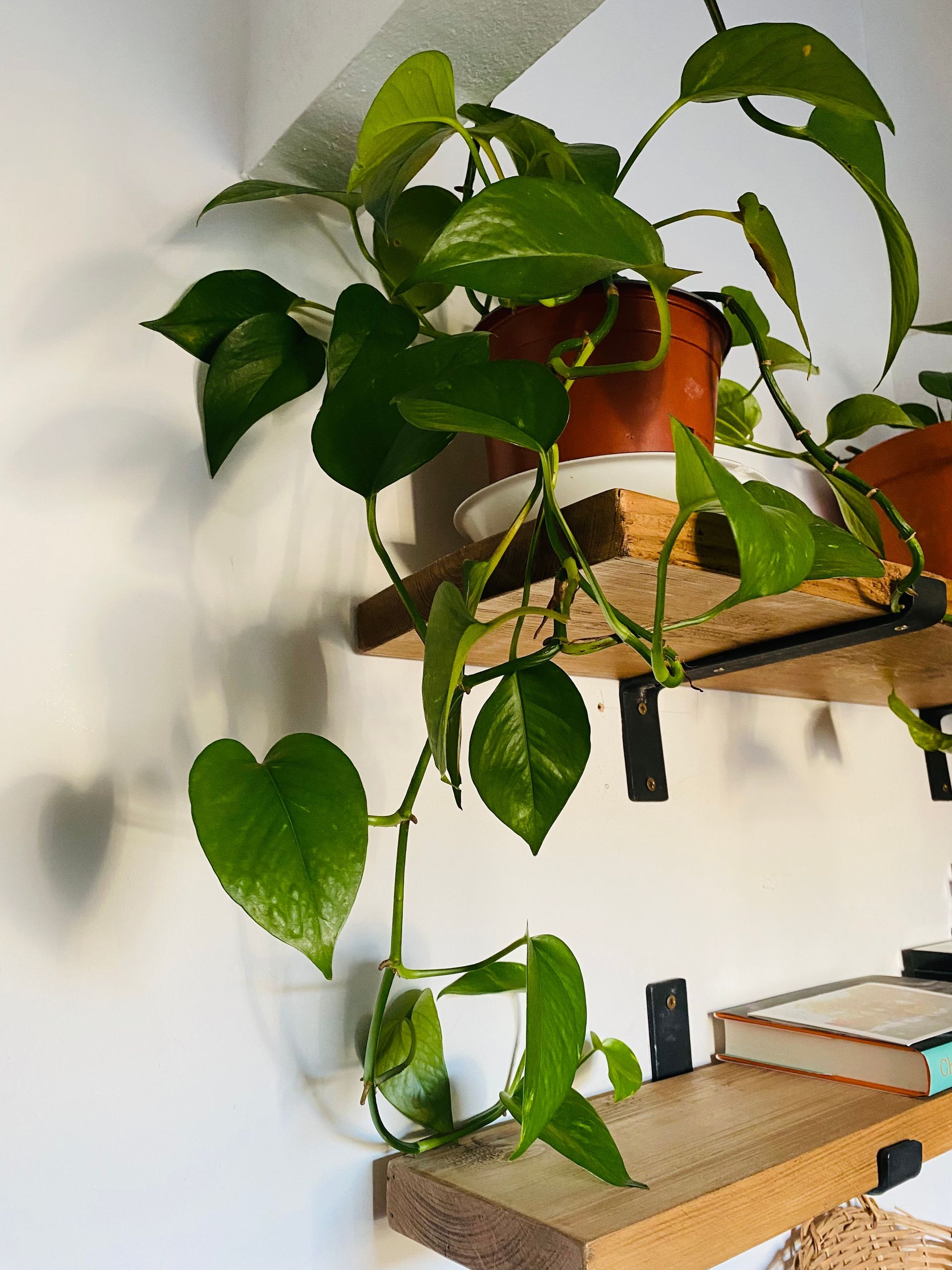
In the Common Room you'll spot two prints of locally-found leaves. One is a fern, which Eva made into a cyanotype as a gift. The second, Winged Head, is a catalpa leaf, gathered in Sydney Gardens by local artist Felicity Bowers, with her resulting work exhibited as part of the Botanical Encounters project at our local gallery 44AD. Inspired by Botanical Encounters, I'm embarking on my own investigation to learn more about the hinterland of our plants - how these tropical species came to be in the South West of England in the first place, to where they are native, and whose stories are entangled with their own. If this interests you too, we'd love to hear what you discover.
